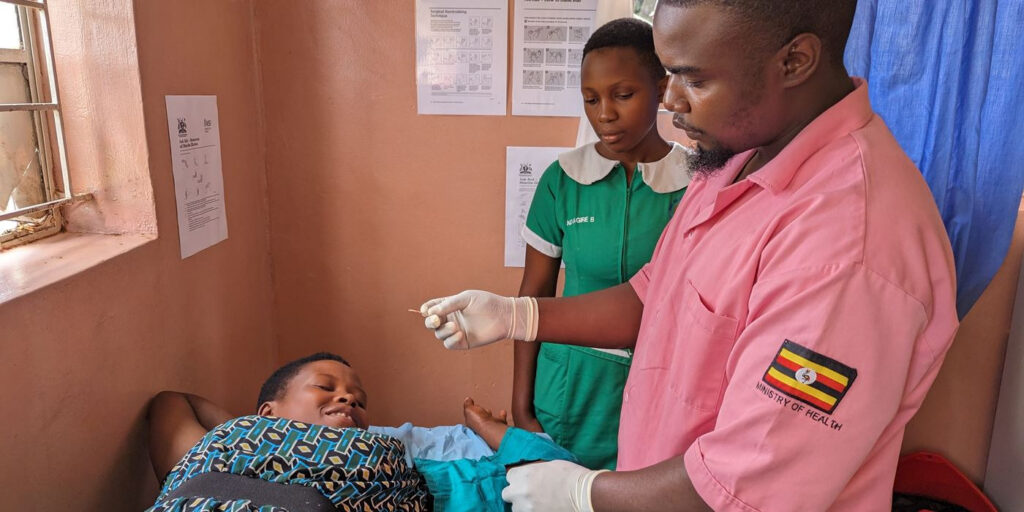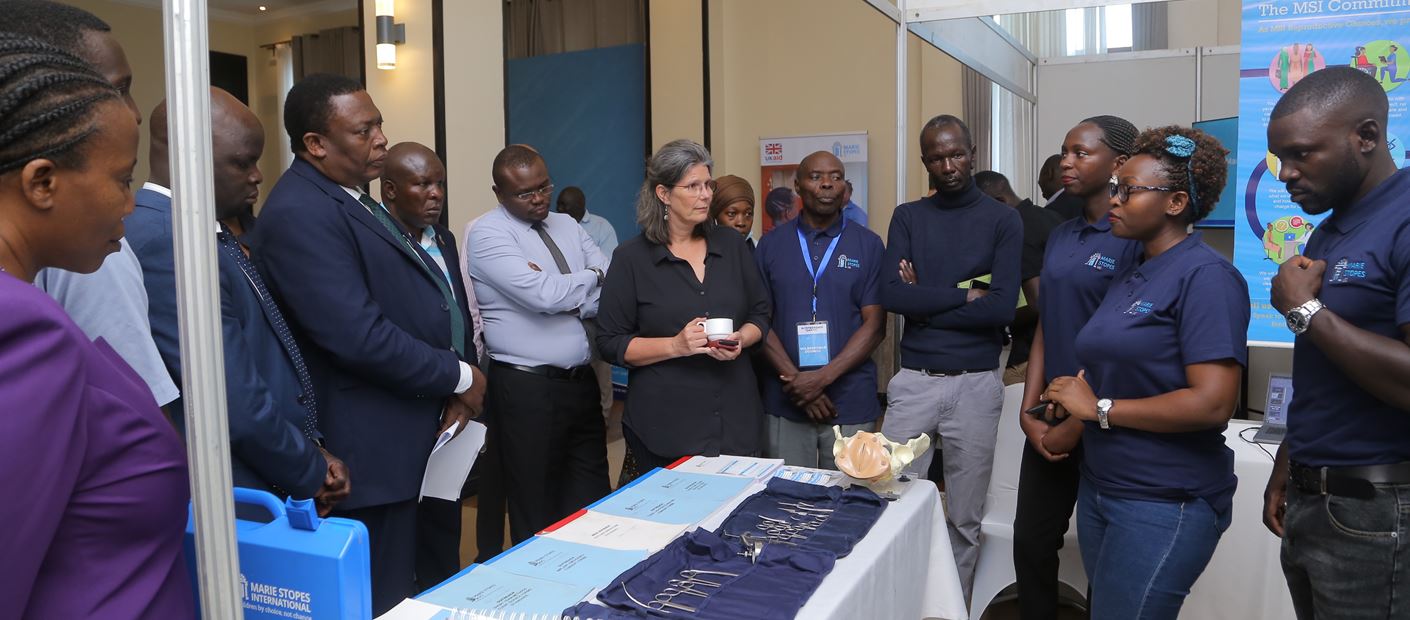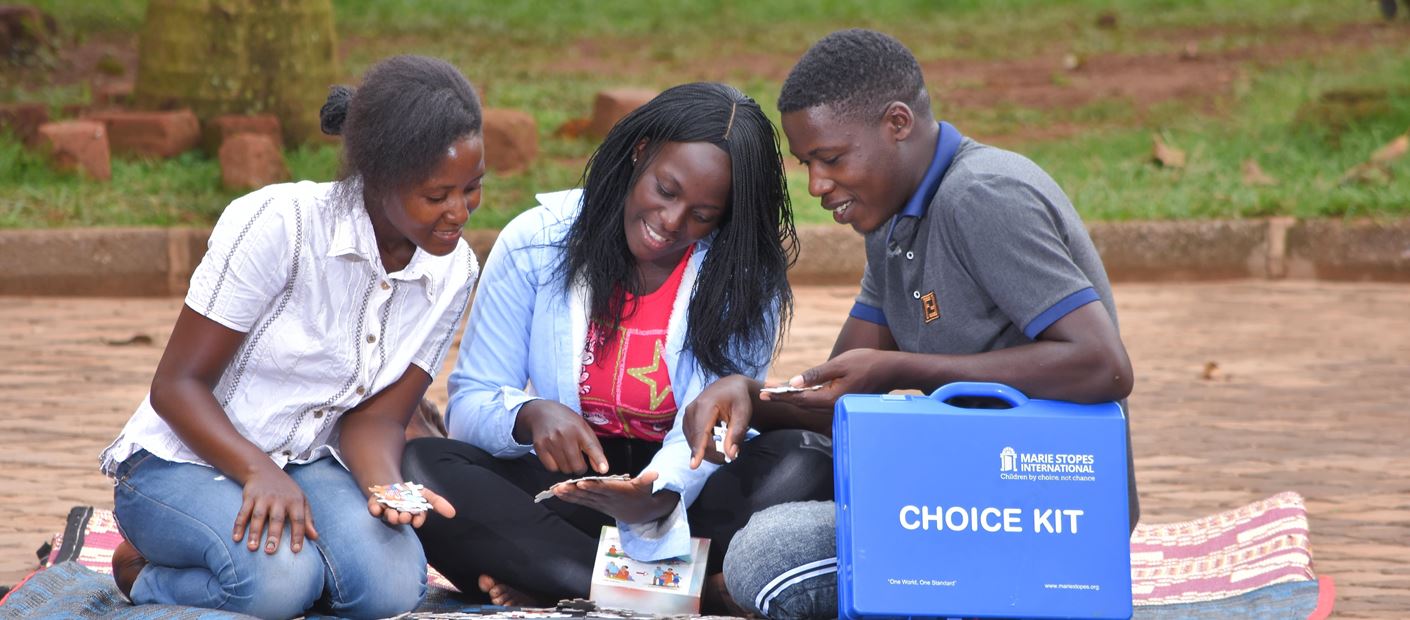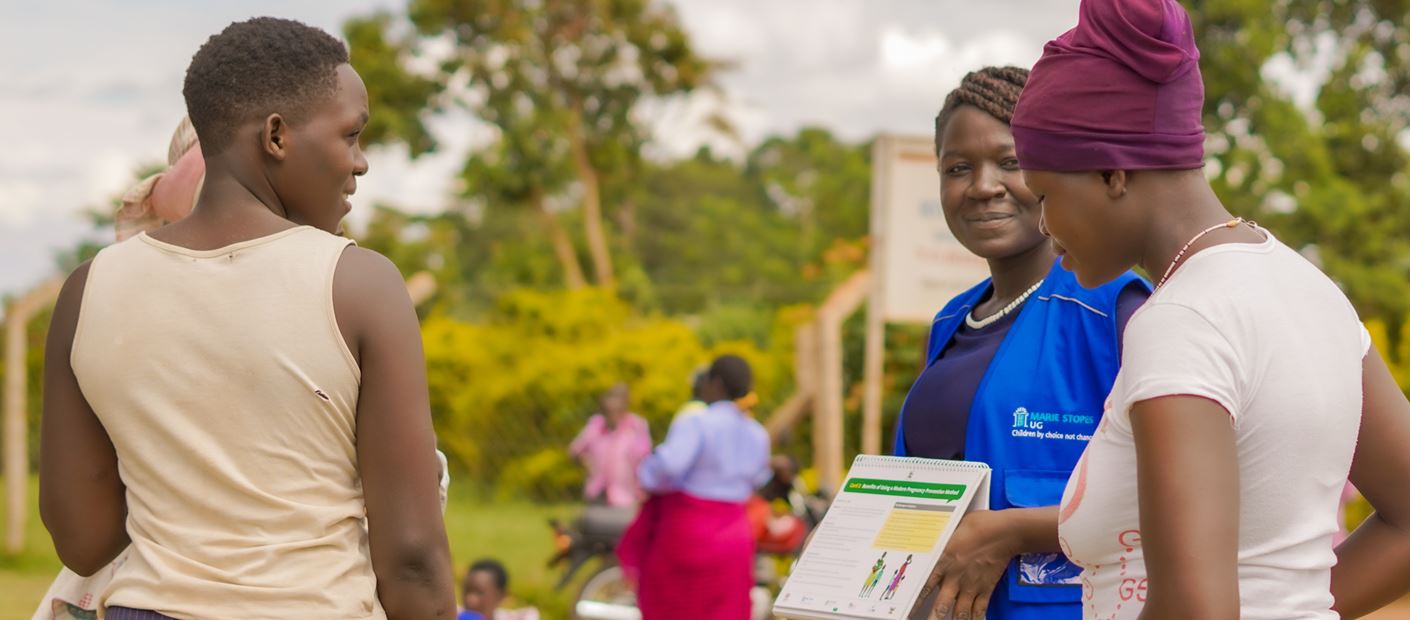
The future we want: Prioritization of women and adolescent health.
September 26 is World Contraception Day, and there is no better time to commemorate and recognize the impact of contraceptives on the health and well-being of all individuals worldwide. Marie Stopes Limited (Uganda) is pleased to partner with the Ministry of Health in observing World Contraception Day on 30th September in the Tooro Region, Kyenjojo District. under the theme “Breaking Barriers, Embracing Contraceptive Choices for Youth.”
Uganda has registered significant improvements in reproductive health outcomes over the last seven years. On September 8, 2023, the Uganda Bureau of Statistics (UBOS) released the 2022 Uganda Demographic and Health Survey (UDHS) key indicators report, which showed progress on key reproductive health indicators.
The UDHS 2022 reveals an increase in the contraceptive prevalence rate (CPR) from 35% in 2016 to 38% in 2022 for married women. The reports also showed a significant decrease in Maternal Mortality Ratio from 336 deaths per 100,000 live births to 189 deaths per 100,000 live births. Although Uganda achieved tremendous advancements in some reproductive health indicators, teenage pregnancy rates are still staggering at 24%, the highest in Sub-Saharan Africa. This means that roughly one in every four teenage girls between 13 and 19 years has either had a live birth or is pregnant with their first child. According to the UNFPA Factsheet, 2021, the Tooro and Rwenzori regions were among the most affected by teenage pregnancies: Kasese district registered 7,319 teenage pregnancies, and Kyenjojo had 4,341 teenage pregnancies (MoH-DHIS-2 (2017-2020)). Sadly, teenage pregnancies contribute to 20% of infant deaths and 28% of maternal deaths. This poses a significant burden on the socio-economic development of Uganda.
Marie Stopes understands that access to Sexual Reproductive Health information and services, including contraceptives, can be a game changer in people’s lives. In 2022, Marie Stopes served a total of 1.5 million clients with contraception country-wide, and services provided are estimated to have prevented 971,000 unintended pregnancies and averted 2,800 maternal deaths. Reducing the maternal mortality rate increases the likelihood of children having their mothers present and a better chance of succeeding in life. Less unplanned pregnancies result in fewer women being pushed into poverty, providing more opportunities for their families to thrive.
These efforts have been possible with the support from the United Kingdom (UK) Government through the RISE Programme (Reducing High Fertility Rates and Improving Sexual Reproductive Health Outcomes), set to run until the end of 2023.
The 5-year programme has tackled barriers to the uptake of family planning (FP), delivering innovative community and service-level interventions in 86 districts across 7 regions in Uganda. The programme has delivered significant impact on the lives of Ugandan girls, women, boys, and men, especially in the hardest-to-reach areas, among adolescents, people living in poverty and those living with a disability.
In implementing the RISE Programme, Marie Stopes has reached over 2,032,212 clients providing over 4 million contraceptives/family planning services and generated over 5.3 million Couple Years of Protection (CYPs). In addition, over 2.79 million were reached with Social and Behavior Change (SBC) messages.
Through the Public Health System Strengthening (PSS) channel, Marie Stopes has built capacity at over 700 public facilities in Uganda, through on-the-job mentorship of over 1,500 health workers to provide quality contraceptive services. The mentorship program has skilled health workers, providing peer learning to build confidence and competence to deliver high-quality family planning services, particularly long-acting contraceptives to be routinely provided at these facilities.
Modern contraceptives have improved the health and well-being of mothers and children by empowering individuals with the ability to choose whether, when, and how many children to have. It is crucial to ensure that all women and girls, in all their diversity and without any discrimination, have adequate access to quality and affordable methods of contraception of their choice.
As the RISE program concludes this December 2023, it is imperative that there is continued investment to improve on the gains made as reported in the 2022 UDHS and scaling up sustainable impact realised on the RISE program. This requires engagement with government, development partners, and all stakeholders to ensure that accurate information on contraception choices is widespread and for availability of high-quality services and commodities at all facilities.
According to Dr Peter Ddungu, the Deputy Country Director of Marie Stopes Limited (Uganda) and Team Leader of the RISE Programme,
“On this World Contraceptive Day, we have the singular privilege and responsibility as health providers, parents, community leaders and leaders at various levels to take a brief pause and appreciate the far we’ve come but more importantly commit to closing the gap between where we are and our desired future. Linear or incremental change will not get us to our desired goal (Vision 2040) – we need a step change in attitude. We have a largely youthful and growing population whose future depends on the choices they are making today as well as the choices being made for them today. Contraceptives are a simple technology that along with immunization, food security and effective education can together set up today’s young person to be a co-creator in their lives rather than a victim of circumstances. Contraceptives are therefore not to be feared but rather to be made use of (appropriately) to attain the quality of life we desire (a means to an end).”
Despite all the tremendous gains achieved so far, there are still significant sexual and reproductive health (SRH) challenges. For example, the high teenage pregnancy rate of 24%, the high unmet need for family planning even with a reduced maternal mortality rate at 189, Uganda still requires consorted effort to meet SDG target 3:1 that aims to reduce the global maternal mortality rate to less than 70 per 100,000 births.
There is a need to make sexual reproductive health services more resilient to shocks that emerge from competing priorities of the country. This cannot be achieved without collective efforts from partners and securing political commitments from national stakeholders plus implementing and incorporating SRH into national strategies and programs. A substantial increase in SRH financing is also required to ensure availability of FP commodities and therefore adequate access to quality SRH services.
About Us
Marie Stopes is a leading network of professionals dedicated to delivering sexual and reproductive health services. We provide SRH services and have a presence in every district of Uganda through one or more of our complimentary service delivery channels namely: Mobile Outreach Clinics, Public Health Systems Strengthening, 15 Marie Stopes Clinics, Private Sector Engagement, Social Marketing and The Women’s Hospital at Lugogo Forest Mall.
Get in touch
We offer clear, comprehensive information and personalised advice on which options might best fit your lifestyle and body.








